General Rule: Convictions Can Affect Gun Rights
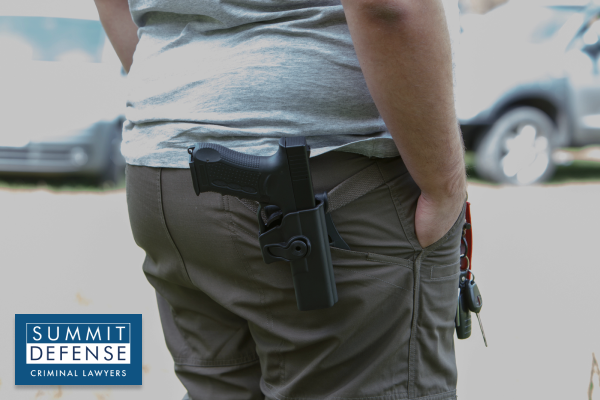 In most cases, being convicted of a crime will affect your ability to legally own or possess firearms. Whether it’s a felony or certain types of misdemeanors, the government can restrict or remove your firearm rights for a period of time -- or for life.
In most cases, being convicted of a crime will affect your ability to legally own or possess firearms. Whether it’s a felony or certain types of misdemeanors, the government can restrict or remove your firearm rights for a period of time -- or for life.
Federal Law Prohibits Gun Ownership After Felony Convictions
Under federal law, anyone convicted of a felony cannot legally own, buy, or carry a gun. The ban applies even if the felony conviction happened in another state or a long time ago. This restriction is part of 18 U.S. Code § 922(g), and it applies to all types of guns, including handguns, rifles, and antique firearms.
The law also blocks gun ownership for people who have been convicted of a domestic violence offense, even if it was a misdemeanor. Once you are labeled a convicted felon, your right to bear arms is removed under federal restrictions, and any attempt to buy or own a weapon could result in new criminal charges.
Federal authorities do not automatically restore civil rights, even if your sentence is over. If you’re a person convicted of a felony, it’s illegal under federal law to have a firearm unless your rights have been officially restored.
California Has Stricter Gun Laws Than Federal Standards
In California, the law is even stricter than federal rules when it comes to firearm possession after a conviction. The state does not allow anyone convicted of a felony to own or possess firearms, and it also adds bans for many types of misdemeanor convictions.
California Penal Code § 29800 outlines the ban, and it applies for life unless your rights are restored through a specific legal process. The state also has stricter rules around ammunition possession, making it a separate offense if you’re caught with bullets, even if you don’t have a gun.
California law also looks at more than just your criminal record, it also considers the type of offense, your history, and whether the conviction involved violence, threats, or a deadly weapon. For this reason, even a person similarly situated in another state may face fewer restrictions than someone with the same history in California.
Both Felonies and Certain Misdemeanors Can Lead to a Ban
While federal law mainly applies to felony convictions, California law goes further and includes a wide list of misdemeanors that also lead to gun restrictions. These include domestic violence, stalking, threats, or assault with a weapon. In many cases, a misdemeanor can lead to a 10-year ban or even a lifetime restriction depending on the charge.
If a person convicted of a misdemeanor used physical force or threatened someone, especially a current or former spouse, the courts may apply a long-term ban. This is often true in domestic violence cases where a guilty plea was entered, even if jail time was not served.
California law also considers your full criminal history when deciding whether you’re allowed to possess firearms again. One old case combined with a new arrest can cause problems. That’s why it’s important to seek legal advice if you’re unsure about your status.
Gun Ownership After a Felony Conviction in California
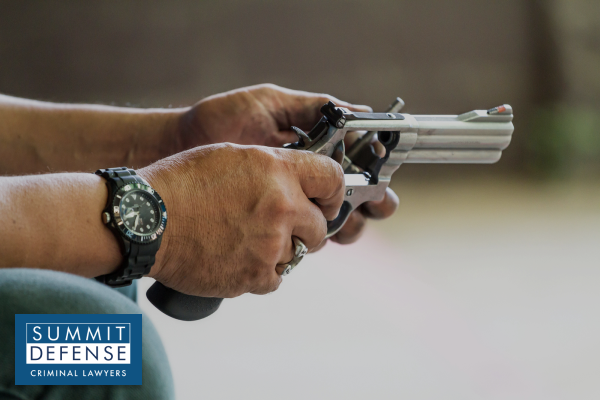 California law imposes a strict, lifelong ban on gun ownership for anyone convicted of a felony. These rules apply to all types of guns and are enforced even after you finish your sentence or probation.
California law imposes a strict, lifelong ban on gun ownership for anyone convicted of a felony. These rules apply to all types of guns and are enforced even after you finish your sentence or probation.
Lifetime Ban for Felonies
In California, a person convicted of a felony cannot legally own, buy, or carry a gun for the rest of their life. This lifetime ban applies no matter how long ago the conviction occurred, and it includes all types of firearm possession, including rifles, pistols, shotguns, and even antique firearms.
The law is written to prevent anyone with a felony conviction from having access to a gun, regardless of whether the offense involved violence. That means even non-violent felonies, such as fraud or theft, can lead to a permanent loss of your firearm rights.
Breaking this law is a serious crime. If you’re caught in illegal possession of a gun after being convicted of a felony, you can face new charges, additional prison time, and fines. This is why understanding your status, and your legal options, is so important.
Applies to Any Firearm: Pistols, Rifles, Shotguns
The ban isn’t limited to handguns. Under California law, it applies to any type of firearm, including shotguns, hunting rifles, and antique firearms that may no longer be in production. Even parts of a gun, like frames or receivers, can be enough to violate the law.
This rule also includes weapons that are not loaded or stored away. Simply being in possession of a gun while being a convicted felon is enough to break the law, even if you don’t intend to use it.
Whether a gun is inherited, borrowed, or found in your home, the law still applies. California courts do not excuse firearm possession just because the weapon was not actively being used. That’s why anyone with a felony conviction must avoid any contact with firearms.
Felon in Possession of a Firearm Is a Crime (Penal Code § 29800)
Under California Penal Code § 29800, it is a separate felony offense for a convicted felon to own or possess firearms. This law also applies to people addicted to drugs and anyone with certain violent felonies or specific misdemeanor convictions involving weapons or threats.
Being found in illegal possession of a firearm can lead to up to three years in state prison, even if your original conviction was not recent. The law also applies to people under active supervision, including parole or probation.
It’s also important to note that ammunition possession by a convicted felon is illegal under a separate law. So even if you don’t have a gun, having bullets can still lead to a new arrest. This is why it’s essential to understand the risks and legal consequences before handling any kind of weapon or related item.
Gun Restrictions After Certain Misdemeanor Convictions
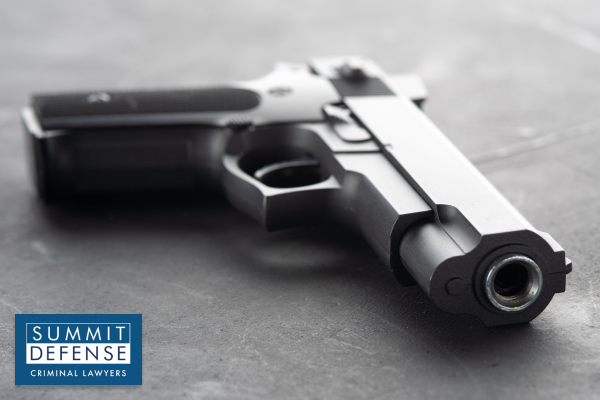 California law does not only limit gun rights for felonies. Certain misdemeanor convictions can also trigger temporary or even lifetime bans on firearm possession. These rules apply to specific offenses, especially those involving violence or threats, and are taken very seriously by the courts.
California law does not only limit gun rights for felonies. Certain misdemeanor convictions can also trigger temporary or even lifetime bans on firearm possession. These rules apply to specific offenses, especially those involving violence or threats, and are taken very seriously by the courts.
10-Year Ban for Specific Misdemeanors
In California, if you are convicted of a misdemeanor involving violence, threats, or weapons, you may face a 10-year ban from owning or possessing a firearm. This applies even if the sentence was light or you were placed on informal probation.
Offenses that lead to a 10-year ban include assault, battery, threats, and some domestic violence crimes. The ban starts from the date of conviction and remains in place even after you complete your sentence or probation. It’s automatic and enforced by both the court and law enforcement agencies.
Even though the ban eventually expires, violating it during the waiting period is a crime and can result in new felony charges. If you're unsure whether your misdemeanor conviction triggered a firearm ban, it’s important to seek legal advice before purchasing or handling a gun.
Federal Law May Impose Lifetime Ban for Misdemeanor Domestic Violence
Under federal law, even a misdemeanor conviction for domestic violence can result in a lifetime ban on gun ownership. This applies if the offense involved physical force or the use of a deadly weapon, even if the sentence did not include jail time.
The ban applies when the victim is a current or former spouse, co-parent, or intimate partner. Once convicted, the person loses their federal firearm rights, and it is illegal to possess firearms anywhere in the country, even if state law allows it after 10 years.
There is no automatic restoration of rights under federal law. Even if the conviction is expunged, the federal ban may still apply unless your rights are restored through a legal pardon or other process recognized under federal standards. Many people don’t realize this ban exists until they fail a background check when trying to buy a firearm.
Can Gun Rights Be Restored After a Conviction?
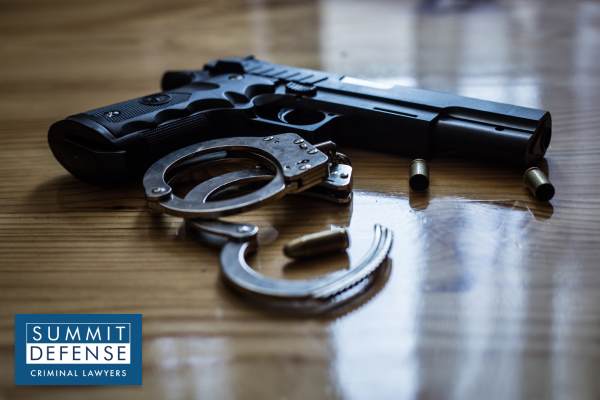 Losing your firearm rights after a conviction can feel permanent, but in some cases, there are legal options to restore them. Whether your rights can be recovered depends on the offense, how much time has passed, and whether you meet California’s legal requirements for relief.
Losing your firearm rights after a conviction can feel permanent, but in some cases, there are legal options to restore them. Whether your rights can be recovered depends on the offense, how much time has passed, and whether you meet California’s legal requirements for relief.
Reduction of Felony to a Misdemeanor (Penal Code § 17(b))
If you were convicted of a felony that was a “wobbler” offense, meaning it could have been charged as either a felony or misdemeanor, you may be able to request a reduction under California Penal Code § 17(b). This law allows some felony convictions to be reclassified as misdemeanors after successful completion of probation.
Once reduced, the lifetime firearm ban may no longer apply under California law. However, the type of offense still matters. If the original conviction involved domestic violence, physical force, or a deadly weapon, you may still face a federal restriction, even if state law no longer treats the crime as a felony.
It’s also important to note that a reduction under § 17(b) does not automatically restore all of your civil rights, and it won’t reverse the ban if you were convicted of a felony under federal law. This is why it's wise to seek legal advice before attempting to buy or own a gun after a reduction.
Expungement Doesn’t Automatically Restore Gun Rights
Many people believe that getting their criminal record expunged will restore their right to possess firearms, but that’s not the case. In California, record expungement helps clear your record for jobs and housing, but it does not lift the gun ban by itself.
Even after an expungement, if you were convicted of a felony or a qualifying misdemeanor, you may still be prohibited from owning a gun. The court may allow you to withdraw your guilty plea, but the firearm restriction often remains under both state and federal law.
This is a common misunderstanding. Expungement helps in many ways, but it does not restore your amendment rights related to firearms unless you take additional legal steps, like a reduction or a Governor’s Pardon. Knowing this can help avoid illegal possession charges based on false assumptions.
FAQs
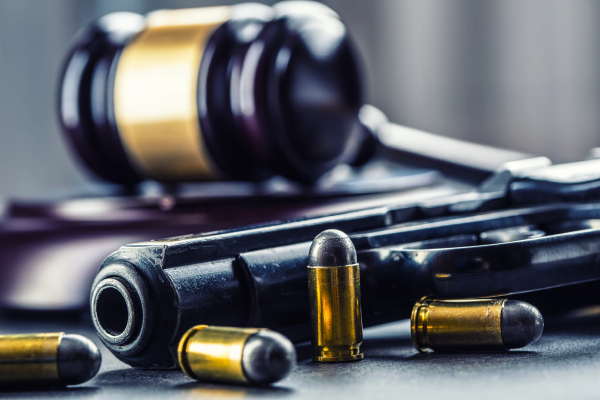 is a right protected by law, but that right can be lost after a criminal conviction. In both California and under federal law, your ability to possess firearms may be limited or permanently banned depending on the type of offense. Understanding your rights (and the risks) is critical if you’ve ever been arrested or convicted.
is a right protected by law, but that right can be lost after a criminal conviction. In both California and under federal law, your ability to possess firearms may be limited or permanently banned depending on the type of offense. Understanding your rights (and the risks) is critical if you’ve ever been arrested or convicted.

 In most cases, being convicted of a crime will affect your ability to legally own or possess firearms. Whether it’s a felony or certain types of misdemeanors, the government can restrict or remove your firearm rights for a period of time -- or for life.
In most cases, being convicted of a crime will affect your ability to legally own or possess firearms. Whether it’s a felony or certain types of misdemeanors, the government can restrict or remove your firearm rights for a period of time -- or for life. California law imposes a strict, lifelong ban on gun ownership for anyone convicted of a felony. These rules apply to all types of guns and are enforced even after you finish your sentence or probation.
California law imposes a strict, lifelong ban on gun ownership for anyone convicted of a felony. These rules apply to all types of guns and are enforced even after you finish your sentence or probation. California law does not only limit gun rights for felonies. Certain misdemeanor convictions can also trigger temporary or even lifetime bans on firearm possession. These rules apply to specific offenses, especially those involving violence or threats, and are taken very seriously by the courts.
California law does not only limit gun rights for felonies. Certain misdemeanor convictions can also trigger temporary or even lifetime bans on firearm possession. These rules apply to specific offenses, especially those involving violence or threats, and are taken very seriously by the courts. Losing your firearm rights after a conviction can feel permanent, but in some cases, there are legal options to restore them. Whether your rights can be recovered depends on the offense, how much time has passed, and whether you meet California’s legal requirements for relief.
Losing your firearm rights after a conviction can feel permanent, but in some cases, there are legal options to restore them. Whether your rights can be recovered depends on the offense, how much time has passed, and whether you meet California’s legal requirements for relief.